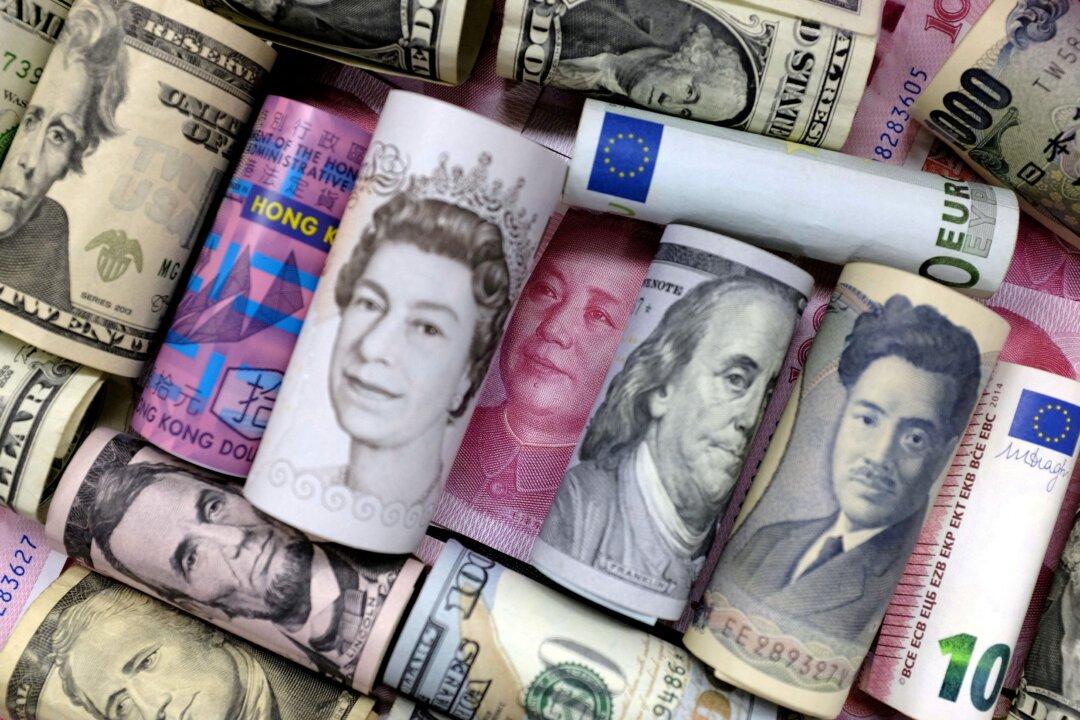LONDON/SYDNEY—The dollar took a pause on Tuesday in what has been a relentless climb higher as under-fire sterling as well as the euro and Japanese yen recovered some ground from multi-year lows, but medium-term fundamentals were still in the greenback’s favor.
Sterling climbed over 1 percent to $1.0810, on track for its biggest daily percentage gain in nearly seven weeks, the euro rose 0.2 percent to $0.9629, and the dollar slid 0.3 percent against the yen to 144.28.





